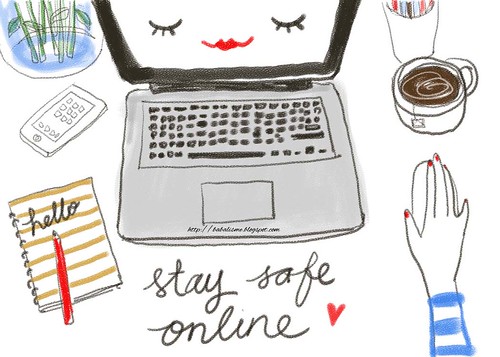Saturday, February 4, 2017
Guest Blogger How to Stay Safe Online
Guest Blogger How to Stay Safe Online
The Internet is a great way to get the information you need and connect to those that matter to you. However, there are many risks associated with sharing your own information in the online world. What you share online can expose you to various risks, such as fraud and identity theft.
Sam over at SingleHop has helped me put together some of the most common vulnerabilities you can find online to help show us how we can better protect ourselves. SingleHop is a dedicated server and cloud hosting company based out of Chicago. Sam is a Senior Infrastructure Engineer there, and deals mainly with in-depth Linux issues and server clustering, but hes also a frequent author on their blog! SingleHops dedicated servers page has an abundance of information on the types of servers they offer -- check it out if youre interested in learning more.

Financial Information
To make online purchases, you would need to provide the e-commerce site with your financial information, such as your credit card number. Some online shopping sites allow you to store your payment information on the site in order to make future purchases faster and more straightforward. While this may certainly be convenient, it does expose you to certain security risks. The recent Target security breach is one example of this. If your credit card information is stored on a sites secure server and the servers security is breached, your financial information can be stolen by hackers. It can then be used to make fraudulent purchases, which is why you should avoid letting sites store your payment information.
Social Security Number
Providing your social security number online can also put you at risk of identity theft, which is a very common cyber crime. With your social security number, criminals may be able to obtain other financial information about you. This can then allow them to steal your identity, which can be used to open fraudulent credit accounts in your name. Avoid sharing your social security number online, unless you are absolutely sure that the site is secure. Even if you wont be responsible for any fraudulent debts, dealing with the fallout of identity theft can be a huge hassle.
Vacation Plans
Many people share their vacation plans on social media. While it may be fun to tell your friends and family that youre traveling, it does come with certain security risks. Groups of organized burglars have been known to go through social media sites to find out more information about people that would be away from their home for an extended period. They would then break into their homes and make off with their belongings. If youre going to leave your home unattended, be careful about what you share online, as you never know who might have access to this information.
Staying safe online is more important now than ever. While there are many security risks, there are also ways to protect yourself. For example, you can update the privacy settings on your social media accounts so that your posts arent visible to the public.
Available link for download